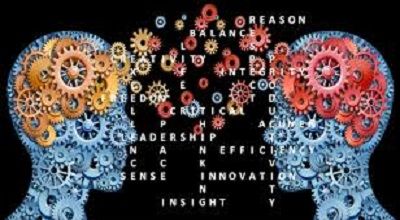Critical and reflective thinking
Critical and reflective thinking are crucial skills that contribute to personal and professional development in various ways.
Here are several reasons why these skills are important:
- Problem Solving: Critical thinking involves analyzing and evaluating information, arguments, or situations. This skill is essential for effective problem-solving, enabling individuals to assess various options, consider potential consequences, and make informed decisions.
- Decision Making: Reflective thinking encourages individuals to examine their own thought processes, assumptions, and biases. This self-awareness is valuable in decision-making, as it helps people make choices that align with their values and goals.
- Effective Communication: Both critical and reflective thinking contribute to effective communication. Critical thinking helps individuals evaluate and organize their ideas logically, while reflective thinking encourages individuals to consider different perspectives and communicate more empathetically.
- Continuous Learning: In a rapidly changing world, the ability to think critically and reflectively is crucial for continuous learning and adaptation. These skills enable individuals to stay curious, seek new information, and update their understanding of various fields.
- Innovation and Creativity: Critical thinking fosters creativity by challenging conventional wisdom and exploring new ideas. Reflective thinking allows individuals to learn from their experiences and adapt their approaches, fostering an environment that encourages innovation.
More here…
- Personal Growth: Reflective thinking promotes self-awareness and self-improvement. By reflecting on one’s experiences, actions, and beliefs, individuals can identify areas for personal growth and development.
- Ethical Decision Making: Critical thinking involves considering the ethical implications of decisions. Reflective thinking encourages individuals to assess their values and ethical principles, leading to more responsible and ethical decision-making.
- Professional Development: In the workplace, critical and reflective thinking are highly valued. Employers seek individuals who can analyze situations, solve problems, and learn from experiences. These skills contribute to career success and advancement.
- Cognitive Skills: Both critical and reflective thinking enhance cognitive skills such as analysis, synthesis, evaluation, and problem-solving. These cognitive abilities are applicable in various aspects of life and contribute to overall mental agility.
- Resilience: Reflective thinking helps individuals cope with challenges and setbacks by providing a framework for learning from experiences. This resilience is valuable in navigating life’s uncertainties and adapting to changing circumstances.
Summary
In summary, critical and reflective thinking is essential for personal and professional growth, effective decision-making, and adapting to an ever-changing world. These skills empower individuals to navigate complexities, make informed choices, and contribute positively to their personal and professional environments.
